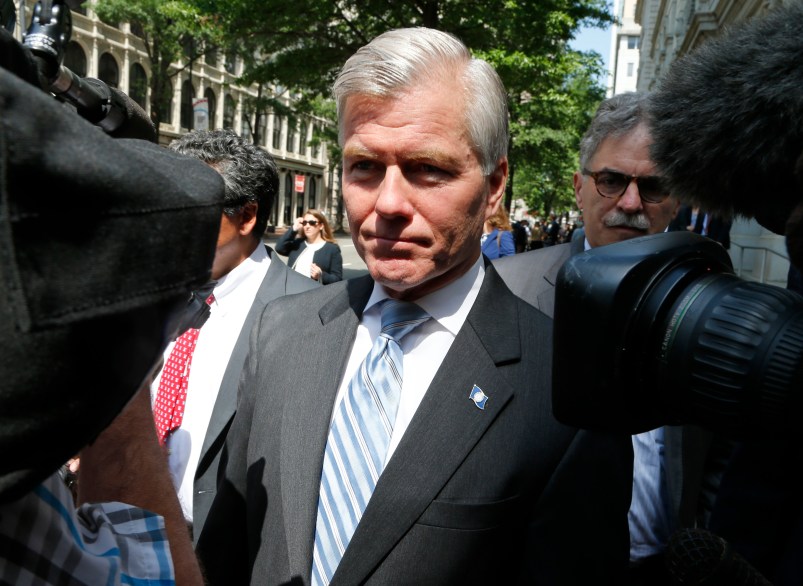WASHINGTON (AP) — The Supreme Court could place new limits on the reach of federal bribery laws used to prosecute elected officials as it takes up the public corruption case of former Virginia Gov. Bob McDonnell.
In the court’s final argument of the term on Wednesday, the justices will consider whether to overturn McDonnell’s conviction for accepting more than $165,000 in gifts and loans from a wealthy businessman in exchange for promoting a dietary supplement.
At issue is a federal law that bars public officials from accepting money or gifts in exchange for “official acts.” The court is expected to clarify what distinguishes bribery from the routine actions that politicians often perform as a courtesy to constituents.
McDonnell insists his role in setting up meetings and hosting events for Star Scientific Inc. CEO Jonnie Williams was part of the customary services doled out by every politician. He says the government is placing every public official at risk of prosecution by criminalizing “everyday acts” that are a typical part of job.
There is no dispute that McDonnell and his wife hosted a product launch for Williams at the governor’s mansion, attended other events promoting Star Scientific’s products and asked other state officials to meet with Williams.
But lawyers for McDonnell argue that he never put any pressure on those officials and that Williams never got what he wanted — state funding for medical studies on the dietary pills.
Prosecutors say it is enough that McDonnell accepted personal benefits from Williams “on the understanding that he would take official action to assist Williams in return.” Those actions included giving special treatment to Williams, including arranging for him to meet a state health official.
They argue that limiting the scope of the law “would allow the purchase and sale of much of what government employees do.”
A three-judge panel of the federal appeals court in Richmond, Virginia, unanimously upheld the former governor’s convictions last year.
Williams loaned the couple tens of thousands of dollars to help them pay off debts, bought a Rolex watch for Bob McDonnell and purchased nearly $20,000 in designer clothes for McDonnell’ wife, Maureen. He also gave them $15,000 to cater their daughter’s wedding and paid for trips and golf outings for the couple and their children. Prosecutors said McDonnell usually responded within days of each gift to help garner support for Williams’ supplement.
McDonnell’s legal arguments could find a sympathetic ear at the court. In 2010, the justices voted unanimously to limit prosecutors’ use of an anti-fraud law that was central in convicting former Enron CEO Jeffrey Skilling. The court limited the law, which defense lawyers had long criticized as overly vague, to cases where bribes or kickbacks were paid.
But the absence of Justice Antonin Scalia, who died in February, could be a blow to McDonnell. Scalia was a prominent critic of the law used to prosecute McDonnell and wrote a 1999 opinion saying the definition of “official act” was narrow.
McDonnell and his wife were convicted in 2014. McDonnell was sentenced to serve two years in prison, while his wife was sentenced to one year and one day. McDonnell remains free while his appeal is being considered and his wife’s appeal is on hold until the high court decides her husband’s case. A ruling is expected by late June.
Copyright 2016 The Associated Press. All rights reserved. This material may not be published, broadcast, rewritten or redistributed.






